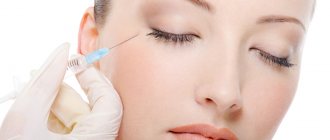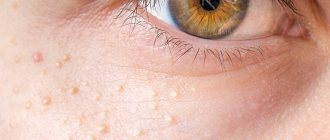Anyone can experience a taste of salt in their mouth. This is a fairly common problem. For some, the discomfort lasts a short time, while for others it lasts for months or even years. To prevent the salty taste in the mouth from spoiling your mood and causing serious complications in the future, you need to identify and eliminate the causes of the pathology.
Many people don’t even try to figure out why they have a constant taste of salt in their mouth, but simply try to get rid of it by introducing other tastes. For example, by eating more sweets.
But this can lead to excess weight gain and digestive diseases. Some people lose their appetite altogether due to such unpleasant sensations. And this ultimately leads to exhaustion of the body and weakening of the immune system. Therefore, this seemingly harmless symptom is not normal and reduces the quality of life.
The reasons can be very different. For the most part, they are not dangerous to human health, but they should not be ignored. Let's look at each of them in more detail.
Dehydration
This reason can be called one of the most basic and most common.
For the body to function well, a person must consume at least two liters of fluid per day. Most of us don't feel thirsty and drink only about three glasses of water a day. But the best chemical composition of saliva directly depends on the amount of liquid that enters the body. As a result, the quality of saliva changes due to lack of water, and a person begins to feel a salty taste. Those who use diuretics are also susceptible to dehydration, as the urination process increases.
With prolonged diarrhea and vomiting, there is also a risk of water imbalance. A lack of water in the body can occur in pregnant women during toxicosis, in those who like different diets, and also in extreme heat.
Therefore, it is very important to ensure that enough fluid enters the body. Moreover, it should be clean water, and not carbonated drinks, coffee and broths.
Poor oral hygiene
Poor oral care can also lead to a salty taste in the mouth. If you don't clean your teeth enough or use low-quality hygiene products, your body can be harmed. Plaque and bacteria will appear, which will accumulate on the gums, tongue and in all hard-to-reach places in the dentition.
This is one of the main reasons for bad breath and unpleasant taste in the mouth.
If the oral microflora is disturbed, dysbacteriosis can develop. Which in turn will contribute to the appearance of bleeding gums, dryness and redness of the mucous membrane, swelling, plaque formation and other unpleasant symptoms.
To avoid all this, you should properly care for your oral cavity. You need to brush your teeth regularly and twice a day. And for the proper level of hygiene, dentists also recommend using dental floss and high-quality mouth rinses.
Dry lips as a sign of disease
In some cases, internal pathologies of individual organs and systems can manifest themselves through the skin. What, besides external factors, can cause dry lips? What disease can cause this unpleasant symptom?
- Fungal infection. The most common cause of inflammation of the skin around the mouth is the fungus Candida Ablicans. This microorganism causes peeling of the lip borders and also provokes the appearance of small wounds in the corners of the mouth.
- Cheilitis. This disease can affect both the lips themselves and the skin around them and the mucous membrane. The disease manifests itself in the form of peeling, the formation of small crusts and wounds. If these symptoms are present, the patient experiences difficulty eating, drinking, and talking.
- Herpes. The presence of herpes simplex virus type 1 in the human body manifests itself in the form of dry lips, itching, and the appearance of fluid-filled blisters on their surface.
- Endocrine system diseases (diabetes, hypothyroidism)
- Low hemoglobin level. One of the signs of low hemoglobin levels in the blood is the appearance of cracks in the corners of the mouth.
- Some medications (hormonal drugs)
- Psoriasis. With this disease, areas of the skin around the mouth may suffer: they begin to peel off, itching and pain appear.
- Allergy. Dry lips can be a sign of an allergic reaction to components included in decorative cosmetics and toothpaste, as well as to a number of other allergens - household dust, pollen, food, etc.
- Hypovitaminosis. A lack of vitamins B2, PP, E, C and A often causes dry lips, peeling and the formation of cracks on their surface.
- Dehydration. Dry lips can be a sign of insufficient fluid intake. Dehydration can also be caused by the body losing large amounts of fluid due to diarrhea, vomiting, excessive sweating, or taking diuretics (water medications).
Exposure to drugs
Taste receptors can be disrupted due to side effects from taking medications. There may be a feeling of dry lips, unpleasant discomfort on the tongue, and a salty taste. This occurs due to a change in the chemical composition of saliva. Everything is individual for each organism and everyone’s reaction is different.
Aggressive cancer therapy damages many body systems, as the effects of chemotherapy are very powerful. Taste sensations may also change, especially if you take a lot of medications.
If this effect occurs, you should inform your doctor. He may replace the drug with another drug, or advise you to be patient. After completing the course of treatment, side symptoms should disappear.
Salt in the mouth and on the lips
In addition to the reasons mentioned above, the taste of salt in the mouth and lips can also occur due to other disorders in the body:
- inflammatory process of the salivary glands;
- diseases of the brain, which is responsible for the functioning of all systems;
- infectious diseases in an advanced stage, so during sinusitis and sinusitis, salty mucus that collects in the sinuses of the nasopharynx can descend into the oral cavity;
- problems with the nervous system;
- tears, which, with severe lacrimation, can penetrate into the oral cavity;
- allergic manifestations;
- after teeth have been removed.
Dry lip skin: causes
The problem of dry lips can have both external and internal causes. In the first case, we are usually talking about such provoking factors as:
- Insufficient air humidity. This problem is especially relevant during the heating season, when the indoor air becomes hotter and drier. To prevent dry lips from causing discomfort at this time, it is recommended to additionally saturate the air with moisture: both special humidifiers and water containers placed along central heating radiators are suitable for this purpose.
- Exposure to frost, wind, sunlight. Both high and low temperatures are a real test for the skin. Exposure to harsh weather conditions can result in very dry and chapped lips. The reason for this problem is explained by the fact that during frost and wind, the skin becomes covered with microscopic cracks, loses its own supply of moisture, and loses elasticity. As for exposure to direct sunlight, lips are more vulnerable to ultraviolet radiation compared to other areas of the face. Due to the negative effects of UV rays, their skin dries, flakes and ages faster.
- Using inappropriate cosmetics. Long-lasting decorative cosmetics (especially matte lipsticks) tend to dry out the skin. As a result of frequent use of such cosmetics, many women complain of dry lips, peeling and the appearance of microscopic cracks on them. Therefore, if you use long-lasting lipsticks, choose products that contain caring ingredients - vegetable oils, animal fats, beeswax, vitamins, etc.
- Habit of licking and biting lips. When a person bites his lips, small cracks form on their surface, and when licking, their water-lipid protective layer is disrupted.
- Smoking. Smoking leads to decreased salivation. Due to this, the smoker licks his lips more often, disrupting their protective water-fat balance and leading to dry skin.
Salt deposits in the mouth of women
During pregnancy, women experience a salty taste in their mouth. And all because after prolonged toxicosis the body becomes severely dehydrated. Dysgeusia may also occur.
This is a change in taste when the taste sensation is distorted or absent. Expectant mothers are susceptible to such processes against the backdrop of strong changes in the body.
Another reason for the taste of salt in the mouth is ordinary tears. And this can arise not only as a result of a woman’s emotional state. Tearfulness often occurs due to eye disease, seasonal allergies, or simply as a reaction to dust and bright sunlight.
Children's question
In children, the taste of salt in the mouth can be due to various reasons. In case of poisoning and severe diarrhea, dehydration occurs, resulting in unpleasant sensations. It all depends on the situation. When the difficult period passes and the child gets better, his condition will improve and the symptoms will disappear.
If your baby has any problems with the nervous system or cries frequently, this symptom may also occur. Therefore, it is very important to promptly treat any triggering disease and consult a doctor to avoid such warning signs. Children's health comes first.
Dry lips in newborns and older children
Dry corners of the lips, cracks on them, the appearance of itching and small wounds cause a lot of inconvenience to both the baby and his parents. The child experiences discomfort and pain while eating, becomes irritable and whiny. Often parents cannot understand the reason for this condition of the baby. It is difficult to detect dry lips in a baby in a timely manner because the problem is not always visible externally, and the child himself is not yet able to explain to mom and dad what is bothering him.
Why are lips dry and flaky? The reasons for this problem in children may be as follows:
- Atopic dermatitis. Peeling and redness of the skin in the nasolabial triangle, accompanied by severe itching, is a common symptom of atopic dermatitis. In addition, cracks and small wounds may appear on the lips.
- Licking lips. Small children have a habit of putting things into their mouths and licking them. Because of this, saliva gets on the skin, which is a rather aggressive alkaline liquid that causes irritation.
- Nasal congestion. If a child has difficulty breathing through his nose, he does it through his mouth. As a result, lips become chapped and dry.
- Increased body temperature. High fever is often accompanied by dry skin, including dry and cracked lips.
In addition to the reasons mentioned above, dry lips in a child can be caused by dehydration, systemic pathologies, exposure to high/low temperatures, etc.
Correction methods
The first step is to identify the cause of the salty taste. Then proceed to the solution. If this is a consequence of dehydration, then the water balance should be normalized. Water is a unique solvent that removes toxins, salts and waste.
If this is a consequence of taking medications, then you should wait until the course of therapy is over, or ask your doctor for an analogue of the drug.
If you have a bacterial infection in your mouth, you should consult your dentist. He will prescribe treatment that will eliminate the disease and associated symptoms. It is also important to promptly and thoroughly care for your teeth, gums and the oral cavity in general. This will not only remove unpleasant taste and odor from your mouth, but will also reduce visits to the dentist.
It is very important to monitor your diet. The menu should not contain products that contain harmful carcinogens. Fatty, spicy and fried foods are best consumed in moderation. But natural products should always be in the diet.
Dry lips: treatment
If dry lips are a symptom of some internal pathology, treatment should be aimed at eliminating the root cause of the dryness. In this case, therapy is prescribed by a doctor, taking into account the general condition of the patient. To speed up recovery, vitamin therapy, correction of the daily diet, and the application of special nourishing and moisturizing external agents may be recommended. If dry lips are accompanied by the formation of wounds and cracks on them that become infected, resulting in inflammation, the doctor may prescribe anti-inflammatory medications.
Prevention measures
If you carry out preventive measures in time and lead a healthy lifestyle, then most diseases can be avoided. The main thing is not to be lazy and take care of yourself.
Prevention measures include:
- eating healthy food, especially during the season, the diet should include fresh fruits, herbs and vegetables;
- high-quality oral hygiene, which includes brushing your teeth twice a day, rinsing your mouth after meals, and using dental floss;
- timely visit to the dentist at least once a year;
- calm attitude to stressful situations, control of negative emotions;
- drinking diet, it is so important to ensure that the body receives enough water, which is the basis of life;
- alcoholic drinks should be consumed in moderation, as they have a dehydrating effect;
- maintaining an active lifestyle and walking in the fresh air.
If you follow these recommendations, the salty taste in your mouth will not bother you. Well, if this symptom makes itself felt, it is better not to ignore this signal from the body.
Because this will lead to deterioration of health and decreased immunity. And if this is the cause of some serious illness, then you can start the process and lose precious time. Timely consultation with a doctor and treatment of any disease at an early stage is the key to longevity.











